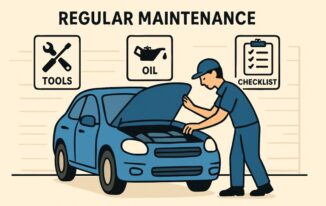
Photo by Adheesha Paranagama on Unsplash
Owning a pool means ensuring the water stays sanitary. Among the most effective methods for keeping the water sanitized is by shocking the pool. How often the technique should be incorporated is a subject of debate among owners in the pool community. But there are specific times that it’s a must if the water is out of line.
Find details on shocking your swimming pool at https://www.wikihow.com/Shock-Your-Swiimming-Pool/.
When you place a pool in your landscape, there’s much more to the feature than merely filling it with water and assuming it will remain pristine. The water will continually change as it’s exposed to the outside elements growing grimy and accumulating debris.
Because of this, chemicals need to be used in the water, particularly sanitizing agents like chlorine. In this way, the pool can stay safe and clean for those who want to take advantage of the structure.
The idea with pool shock liquid is to raise the chlorine level rapidly in an effort to eliminate the bacteria, prevent the growth of algae, pathogens, and chloramines, avoid contaminants, and clear the water.
Owners can choose a chlorine-based product or non-chlorine based on their personal preference. The most common choice is a chlorinated shock for a hefty chlorine dose to wipe out all the nasties in one pass. How do you know when your pool needs to be shocked? Let’s learn.
When Should You Use Liquid Pool Shock
Different pool owners have varied ideas of when to shock their pools. Some will do so each week based on heavy usage. That can be a matter of personal preference, but there are specific times when the process must be done as a part of routine care and upkeep of the water.
The goal is to keep the pool as sanitary and safe for swimmers as possible. If you’re unsure how often it would deem appropriate to achieve this, the following circumstances require taking that step.
● The smell of chlorine is evident
When there is a heavy smell of chlorine surrounding the pool area, that’s an indication you need to clean the water because it is actually lacking chlorine. That might not sound logical if the water produces a heavy substance smell.
Logically, you would believe there would be too much chlorine in this situation. However, the odor coming from the pool is chloramines created when ammonia and free chlorine interact within the pool. The reference for this combination is “combined chlorine.”
It floats on the surface of the water, passing the gasses in the air. These are hazardous and irritating for people who can develop red eyes, lung and nasal irritation, itchy skin, and respiratory reactions. Essentially if your pool smells of strong chlorine, it’s filthy needing a shock immediately.
● Heavy pool traffic will require more frequent shocks
When you have a pool, your home will be the place to go for entertainment for everyone in the neighborhood, with close friends, and for family. That’s a lot of usages and will mean that you need to shock on a more frequent basis.
People pass “organic matter” into the water. That will include hair, oil from skin, sunscreen chemicals, and sweat, not to mention potential urine and fecal material from those little ones.
This causes the chlorine to put forth that much more effort in attempting to keep the water clean, depleting the substance, meaning you need to replenish it. Click to learn how much chlorine you need to shock a pool.

Photo by Tim Mossholder on Unsplash
● There have been storms with heavy periods of rain
The chemical makeup in the pool water can become readily unbalanced, with even rain throwing it off since this can be somewhat acidic. As a rule, the pH level in a pool should reduce with a shower, but the indication is that “alkalinity” prevents it from dropping significantly.
A heavy rainstorm dumps contaminants into the water from insects, debris, and even mold spores blowing through the air plus, the rainwater has the potential to create an imbalance in the pool water by diluting the chlorine. The chlorine is restored when the pool receives a shock, and the water is rebalanced.
Final Thought
Of course, you want to ensure to shock a pool at the point of opening or closing for the season. When opening, the water needs to be adequately balanced and then oxidized and sanitized through the shocking process.
Shocking at the end of the season will keep the pool clean and sanitary while the structure is unused during the off-season.
While you must shock the pool in the above-given situations (there are quite a few more), in addition, a good rule of thumb for pool owners is to get in the habit of regularly shocking once weekly for excellent care and upkeep.
Not everyone will agree with that, some will only do possibly once per month, and many variables come into play. Still, super clean is always better than potentially unsafe.



